- Home
- Fredric Brown
Space On My Hands Page 3
Space On My Hands Read online
Page 3
But back to Martin Blue, whose entrance into the underworld coincided with the disappearance of Bela Joad from the latter’s hotel.
Martin Blue, as it turned out, was not a very nice man. He had no visible means of support other than gambling and he seemed to lose, in small amounts, almost more often than he won. He almost got in trouble on a bad check he gave to cover his losses in one game, but he managed to avoid being liquidated by making the check good. His only reading seemed to be the Racing Microform, and he drank too much, mostly in a tavern (with clandestine gambling at the back) which formerly had been operated by Gyp Girard. He got beaten up there once because he defended Gyp against a crack made by the current proprietor to the effect that Gyp had lost his guts and turned honest.
For a while fortune turned against Martin Blue and he went so broke that he had to take a job as a waiter in the outside room of a Michigan Boulevard joint called Sloppy Joe’s, possibly because Joe Zatelli, who ran it, was the nattiest dresser in Chicago — and in the fin de siècle era when leopard-skin suits (synthetic but finer and more expensive than real leopard skin) were a dime a dozen and plain pastel-silk underwear was dated.
Then a funny thing happened to Martin Blue. Joe Zatelli killed him. Caught him, after hours, rifling the till, and just as Martin Blue turned around, Zatelli shot him. Three times for good measure. And then Zatelli, who never trusted accomplices, got the body into his car and deposited it in an alley back of a teletheater.
The body of Martin Blue got up and went to see Chief Dyer Rand and told Rand what he wanted done.
“You took a hell of a chance,” Rand said.
“Not too much of a chance,” Blue said. “I’d put blanks in his gun and I was pretty sure he’d use that. He won’t ever find out, incidentally, that the rest of the bullets in it are blanks unless he tries to kill somebody else with it; they don’t look like blanks. And I had a pretty special vest on under my suit. Rigid backing and padded on top to feel like flesh, but of course he couldn’t feel a heartbeat through it. And it was gimmicked to make a noise like explosive cartridges hitting — when the duds punctured the compartments.”
“But if he’d switched guns or bullets?”
“Oh, the vest was bulletproofed for anything short of atomics. The danger was in his thinking of a fancy way of disposing of the body. If he had, I could have taken care of myself, of course, but it would have spoiled the plan and cost me three months’ build-up. But I’d studied his style and I was pretty sure what he’d do. Now here’s what I want you to do, Dyer —”
The newspapers and videocasts the next morning carried the story of the finding of a body of an unidentified man in a certain alley. By afternoon they reported that it had been identified as the body of Martin Blue, a small-time crook, who had lived on Lake Shore Drive, in the heart of the Tenderloin. And by evening a rumor had gone out through the underworld to the effect that the police suspected Joe Zatelli, for whom Blue had worked, and might pick him up for questioning.
And plainclothesmen watched Zatelli’s place, front and back, to see where he’d go if he went out. Watching the front was a small man about the build of Bela Joad or Martin Blue. Unfortunately, Zatelli happened to leave by the back and he succeeded in shaking off the detectives on his trail.
They picked him up the next morning, though, and took him to headquarters. They put the lie-detector on him and asked him about Martin Blue. He admitted Blue had worked for him but said he’d last seen Blue when the latter had left his place after work the night of the murder. The lie-detector said he wasn’t lying.
Then they pulled a tough one on him. Martin Blue walked into the room where Zatelli was being questioned. And the trick fizzled. The gauges of the detector didn’t jump a fraction of a millimeter and Zatelli looked at Blue and then at his interrogators with complete indignation. “What’s the idea?” he demanded. “The guy ain’t even dead, and you’re asking me if I bumped him off?”
They asked Zatelli, while they had him there, about some other crimes he might have committed, but obviously-according to his answers and the lie-detector — he hadn’t done any of them. They let him go.
Of course that was the end of Martin Blue. After showing up before Zatelli at headquarters, he might as well have been dead in an alley for all the good he was going to do.
Bela Joad told Chief Rand, “Well, anyway, now we know.”
“What do we know?”
“We know for sure the detector is being beaten. You might conceivably have been making a series of wrong arrests before. Even the evidence I gave you against Girard might have been misleading. But we know that Zatelli beat the machine. Only I wish Zatelli had come out the front way so I could have tailed him; we might have the whole thing now instead of part of it.”
“You’re going back? Going to do it all over again?”
“Not the same way. This time I’ve got to be on the other end of a murder, and I’ll need your help on that.”
“Of course. But won’t you tell me what’s on your mind?”
“I’m afraid I can’t, Dyer. I’ve got a hunch within a hunch. In fact, I’ve had it ever since I started on this business. But will you do one other thing for me?”
“Sure. What?”
“Have one of your men keep track of Zatelli, of everything he does from now on. Put another one on Gyp Girard. In fact, take as many men as you can spare and put one on each of the men you’re fairly sure has beaten the detector within the last year or two. And always from a distance; don’t let the boys know they’re being checked on. Will you?”
“I don’t know what you’re after, but I’ll do it. Won’t you tell me anything? Joad, this is important. Don’t forget it’s not just a case; it’s something that can lead to the breakdown of law enforcement.”
Bela Joad smiled. “Not quite that bad, Dyer. Law enforcement as it applies to the underworld, yes. But you’re getting your usual percentage of convictions on non-professional crimes.”
Dyer Rand looked puzzled. “What’s that got to do with it?”
“Maybe everything. It’s why I can’t tell you anything yet. But don’t worry.” Joad reached across the desk and patted the chief’s shoulder, looking — although he didn’t know it — like a fox terrier giving his paw to an airedale. “Don’t worry, Dyer. I’ll promise to bring you the answer. Maybe I won’t be able to let you keep it.”
“Do you really know what you’re looking for?”
“Yes. I’m looking for a criminologist who disappeared well over two years ago. Dr. Ernst Chappel.”
“You think —?”
“Yes, I think. That’s why I’m looking for Dr. Chappel.”
But that was all Dyer could get out of him. Bela Joad left Dyer Rand’s office and returned to the underworld.
And in the underworld of Chicago a new star arose. Perhaps one should call him a nova rather than merely a star, so rapidly did he become famous — or notorious. Physically, he was rather a small man, no larger than Bela Joad or Martin Blue, but he wasn’t a mild little man like Joad or a weak jackal like Blue. He had what it took, and he parlayed what he had. He ran a small night club, but that was just a front. Behind that front things happened, things that the police couldn’t pin on him, and — for that matter — didn’t seem to know about, although the underworld knew.
His name was Willie Ecks, and nobody in the underworld had ever made friends and enemies faster. He had plenty of each; the former were powerful and the latter were dangerous. In other words, they were both the same type of people.
His brief career was truly — if I may scramble my star-nova metaphor but keep it celestial — a meteoric matter. And for once that hackneyed and inaccurate metaphor is used correctly. Meteors do not rise — as anybody who has ever studied meteorology, which has no connection with meteors, knows. Meteors fall, with a dull thud. And that is what happened to Willie Ecks, when he got high enough.
Three days before, Willie Ecks’s worst enemy had vanished. Two of his henchm
en spread the rumor that it was because the cops had come and taken him away, but that was obviously malarkey designed to cover the fact that they intended to avenge him. That became obvious when, the very next morning, the news broke that the gangster’s body had been found, neatly weighted, in the Blue Lagoon at Washington Park.
And by dusk of that very day rumor had gone from bistro to bistro of the underworld that the police had pretty good proof who had killed the deceased — and with a forbidden atomic at that — and that they planned to arrest Willie Ecks and question him. Things like that get around even when it’s not intended that they should.
And it was on the second day of Willie Ecks’s hiding-out in a cheap little hotel on North Clark Street, an old-fashioned hotel with elevators and windows, his whereabouts known only to a trusted few, that one of those trusted few gave a certain knock on his door and was admitted.
The trusted one’s name was Mike Leary and he’d been a close friend of Willie’s and a close enemy of the gentleman who, according to the papers, had been found in the Blue Lagoon.
He said, “Looks like you’re in a jam, Willie.”
“—, yes,” said Willie Ecks. He hadn’t used facial depilatory for two days; his face was blue with beard and bluer with fear.
Mike said, “There’s a way out, Willie. It’ll cost you ten grand. Can you raise it?”
“I’ve got it. What’s the way out?”
“There’s a guy. I know how to get in touch with him; I ain’t used him myself, but I would if I got in a jam like yours. He can fix you up, Willie.”
“How?”
“He can show you how to beat the lie-detector. I can have him come around to see you and fix you up. Then you let the cops pick you up and question you, see? They’ll drop the charge — or if they bring it to trial, they can’t make it stick.”
“What if they ask me about — well, never mind what — other things I may have done?”
“He’ll take care of that, too. For five grand he’ll fix you so you can go under that detector clean as — as clean as hell.”
“You said ten grand.”
Mike Leary grinned. “I got to live too, don’t I, Willie? And you said you got ten grand, so it ought to be worth that much to you, huh?”
Willie Ecks argued, but in vain. He had to give Mike Leary five thousand-dollar bills. Not that it really mattered, because those were pretty special thousand-dollar bills. The green ink on them would turn purple within a few days. Even in 1999 you couldn’t spend a purple thousand-dollar bill, so when it happened Mike Leary would probably turn purple too, but by that time it would be too late for him to do anything about it.
It was late that evening when there was a knock on Willie Ecks’s hotel room door. He pressed the button that made the main panel of the door transparent from his side.
He studied the nondescript-looking man outside the door very carefully. He didn’t pay any attention to facial contours or to the shabby yellow suit the man wore. He studied the eyes somewhat, but mostly he studied the shape and conformation of the ears and compared them mentally with the ears of photographs he had once studied exhaustively.
And then Willie Ecks put his gun back into his pocket and opened the door. He said, “Come in.”
The man in the yellow suit entered the room and Willie Ecks shut the door very carefully and locked it.
He said, “I’m proud to meet you, Dr. Chappel.”
He sounded as though he meant it, and he did mean it.
It was four o’clock in the morning when Bela Joad stood outside the door of Dyer Rand’s apartment. He had to wait, there in the dimly luminous hallway, for as long as it took the chief to get out of bed and reach the door, then activate the one-way-transparent panel to examine his visitor.
Then the magnetic lock sighed gently and the door opened. Rand’s eyes were bleary and his hair was tousled. His feet were thrust into red plastic slippers and he wore neonylon sleeping pajamas that looked as though they had been slept in.
He stepped aside to let Bela Joad in, and Joad walked to the center of the room and stood looking about curiously. It was the first time he’d ever been in Rand’s private quarters. The apartment was like that of any other well-to-do bachelor of the day. The furniture was unobtrusive and functional, each wall a different pastel shade, faintly fluorescent and emitting gentle radiant heat and the faint but constant caress of ultraviolet that kept people who could afford such apartments healthily tanned. The rug was in alternate one-foot squares of cream and gray, the squares separate and movable so that wear would be equalized. And the ceiling, of course, was the customary one-piece mirror that gave an illusion of height and spaciousness.
Rand said, “Good news, Joad?”
“Yes. But this is an unofficial interview, Dyer. What I’m going to tell you is confidential between us.”
“What do you mean?”
Joad looked at him. He said, “You still look sleepy, Dyer. Let’s have coffee. It’ll wake you up, and I can use some myself.”
“Fine,” Dyer said. He went into the kitchenette and pressed the button that would heat the coils of the coffee-tap. “Want it laced?” he called back.
“Of course.”
Within a minute he came back with two cups of steaming café royale. With obvious impatience he waited until they were seated comfortably and each had taken his first sip of the fragrant beverage before he asked, “Well Joad?”
“When I say it’s unofficial, Dyer, I mean it. I can give you the full answer, but only with the understanding that you’ll forget it as soon as I tell you, that you’ll never tell another person, and that you won’t act upon it.”
Dyer Rand stared at his guest in amazement. He said, “I can’t promise that! I’m chief of police, Joad. I have my duty to my job and to the people of Chicago.”
“That’s why I came here, to your apartment, instead of to your office. You’re not working now, Dyer; you’re on your own time.”
“But —”
“Do you promise?”
“Of course not.”
Bela Joad sighed. “Then I’m sorry for waking you, Dyer.” He put down his cup and started to rise.
“Wait! You can’t do that. You can’t just walk out on me!”
“Can’t I?”
“All right, all right, I’ll promise. You must have some good reason. Have you?”
“Yes.”
“Then I’ll take your word for it.”
Bela Joad smiled. “Good,” he said. “Then I’ll be able to report to you on my last case. For this is my last case, Dyer. I’m going into a new kind of work.”
Rand looked at him incredulously. “What?”
“I’m going to teach crooks how to beat the lie-detector.”
Chief Dyer Rand put down his cup slowly and stood up. He took a step toward the little man, about half his weight, who sat at ease on the armless, overstuffed chair.
Bela Joad still smiled. He said, “Don’t try it, Dyer. For two reasons. First, you couldn’t hurt me and I wouldn’t want to hurt you and I might have to. Second, it’s all right; it’s on the up and up. Sit down.”
Dyer Rand sat down.
Bela Joad said, “When you said this thing was big, you didn’t know how big. And it’s going to be bigger. Chicago is just the starting point. And thanks, by the way, for those reports I asked you for. They are just what I expected they’d be.”
“The reports? But they’re still in my desk at headquarters.”
“They were. I’ve read them and destroyed them. Your copies, too. Forget about them. And don’t pay too much attention to your current statistics. I’ve read them, too.”
Rand frowned. “And why should I forget them?”
“Because they confirm what Ernie Chappel told me this evening. Do you know, Dyer, that your number of major crimes has gone down in the past year by an even bigger percentage than the percentage by which your convictions for major crimes has gone down?”
“I noticed that. You
mean, there’s a connection?”
“Definitely. Most crimes — a very high percentage of them — are committed by professional criminals, repeaters. And Dyer, it goes even farther than that. Out of several thousand major crimes a year, ninety percent of them are committed by a few hundred professional criminals. And do you know that the number of professional criminals in Chicago has been reduced by almost a third in the last two years? It has. And that’s why your number of major crimes has decreased.”
Bela Joad took another sip of his coffee and then leaned forward. “Gyp Girard, according to your report, is now running a vitadrink stand on the West Side; he hasn’t committed a crime in almost a year — since he beat your lie-detector.” He touched another finger. “Joe Zatelli, who used to be the roughest boy on the Near North Side, is now running his restaurant straight. Carey Hutch. Wild Bill Wheeler — Why should I list them all? You’ve got the list, and it’s not complete because there are plenty of names you haven’t got on it, people who went to Ernie Chappel so he could show them how to beat the detector, and then didn’t get arrested after all. And nine out of ten of them — and that’s conservative, Dyer — haven’t committed a crime since!”
Dyer Rand said, “Go on. I’m listening.”
“My original investigation of the Chappel case showed me that he’d disappeared voluntarily. And I knew he was a good man, and a great one. I knew he was mentally sound because he was a psychiatrist as well as a criminologist. A psychiatrist’s got to be sound. So I knew he’d disappeared for some good reason.
“And when, about nine months ago, I heard your side of what had been happening in Chicago, I began to suspect that Chappel had come here to do his work. Are you beginning to get the picture?”
“Faintly.”
“Well, don’t faint yet. Not until you figure how an expert psychiatrist can help crooks beat the detector. Or have you?”

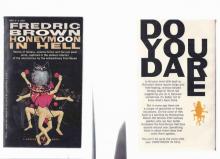 Hall of Mirrors
Hall of Mirrors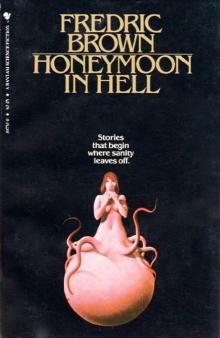 Honeymoon in Hell
Honeymoon in Hell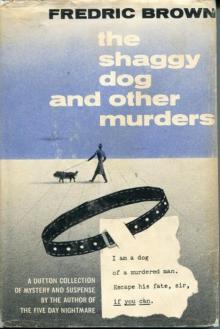 The Shaggy Dog and Other Murders
The Shaggy Dog and Other Murders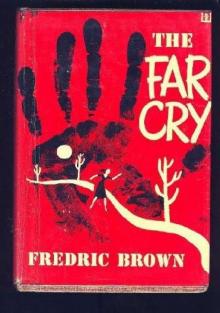 The Far Cry
The Far Cry Arena
Arena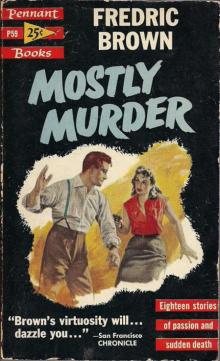 Mostly Murder
Mostly Murder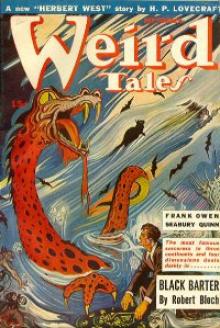 The Geezenstacks
The Geezenstacks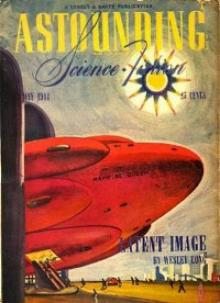 The Yehudi Principle
The Yehudi Principle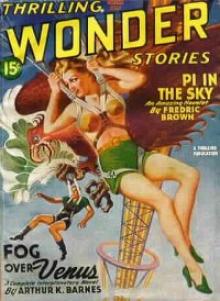 Pi in the Sky
Pi in the Sky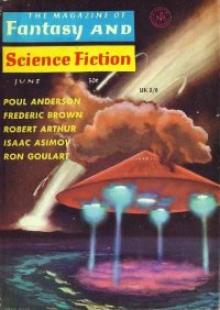 Eine Kleine Nachtmusik
Eine Kleine Nachtmusik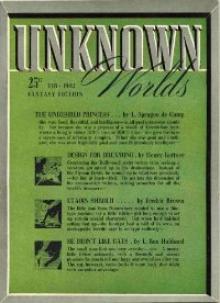 Etaoin Shrdlu
Etaoin Shrdlu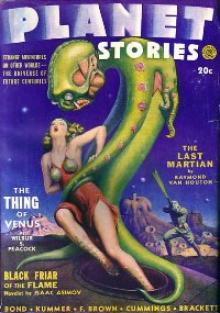 The Star Mouse
The Star Mouse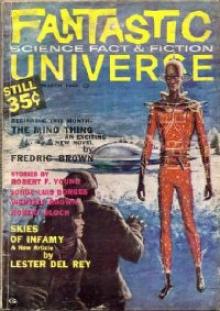 The Mind Thing
The Mind Thing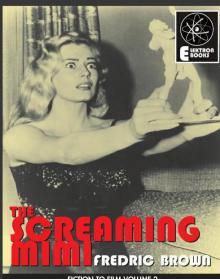 The Screaming Mimi
The Screaming Mimi The Fabulous Clipjoint
The Fabulous Clipjoint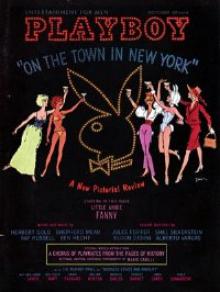 Puppet Show
Puppet Show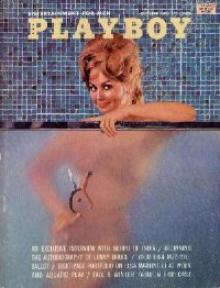 It Didn't Happen
It Didn't Happen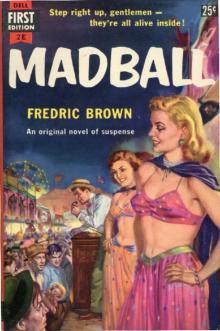 Madball
Madball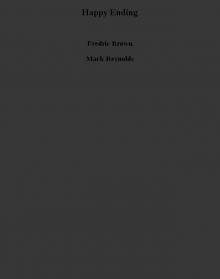 Happy Ending
Happy Ending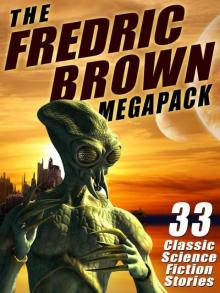 The Fredric Brown Megapack: 33 Classic Science Fiction Stories
The Fredric Brown Megapack: 33 Classic Science Fiction Stories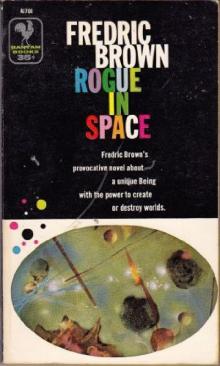 Rogue in Space
Rogue in Space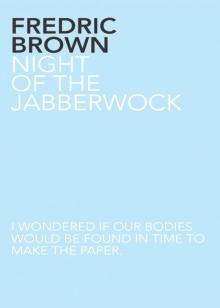 Night of the Jabberwock
Night of the Jabberwock The Dead Ringer
The Dead Ringer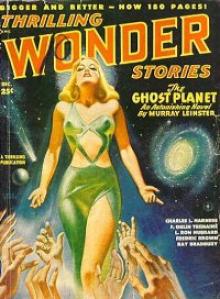 Knock
Knock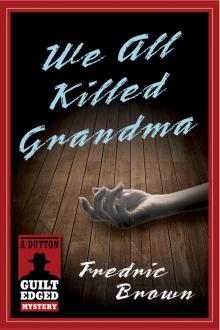 We All Killed Grandma
We All Killed Grandma Space On My Hands
Space On My Hands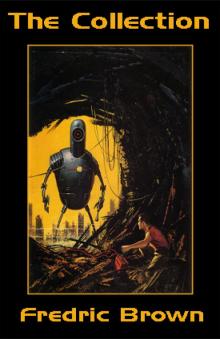 The Collection
The Collection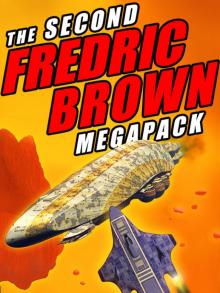 The Second Fredric Brown Megapack: 27 Classic Science Fiction Stories
The Second Fredric Brown Megapack: 27 Classic Science Fiction Stories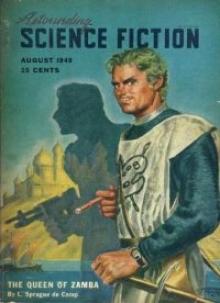 Letter to a Phoenix
Letter to a Phoenix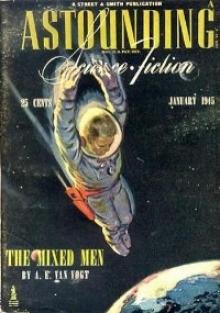 The Waveries
The Waveries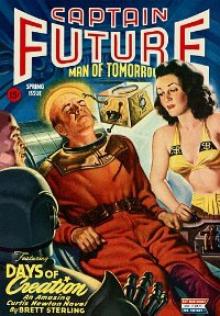 Nothing Sirius
Nothing Sirius The Deep End
The Deep End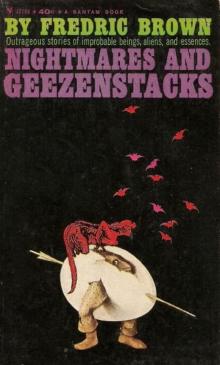 Nightmares & Geezenstacks
Nightmares & Geezenstacks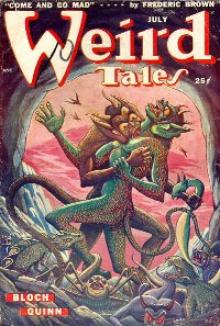 Come and Go Mad
Come and Go Mad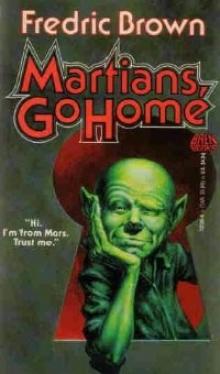 Martians, Go Home
Martians, Go Home